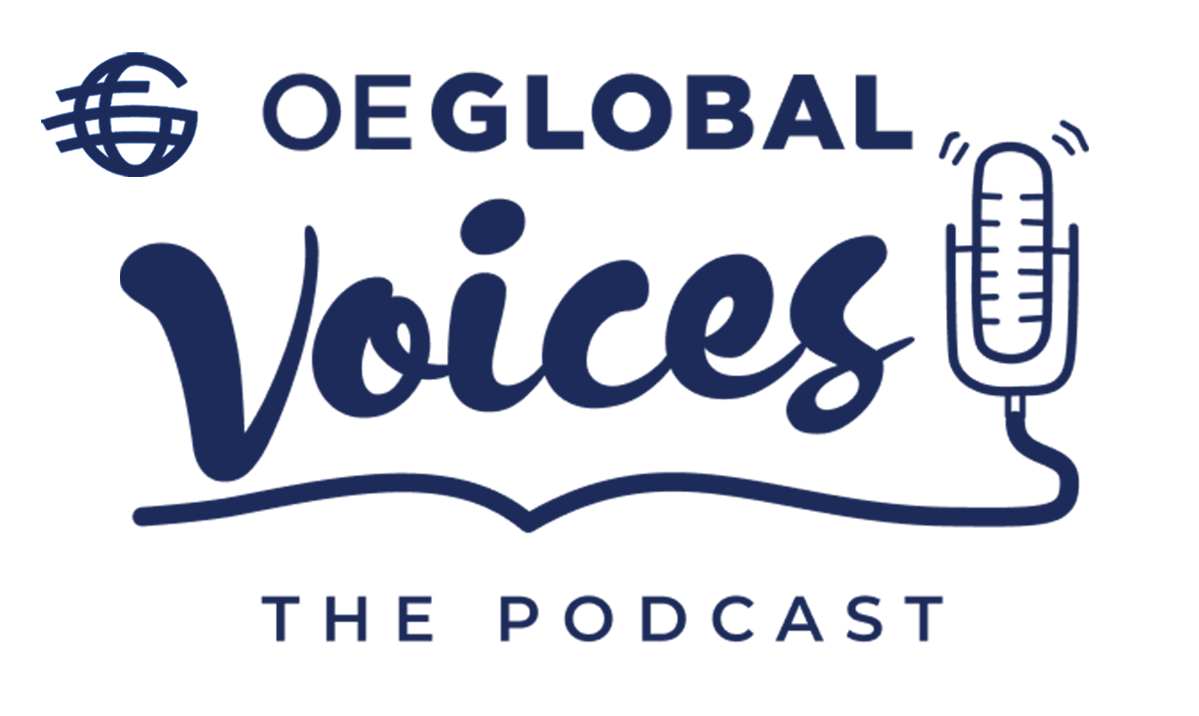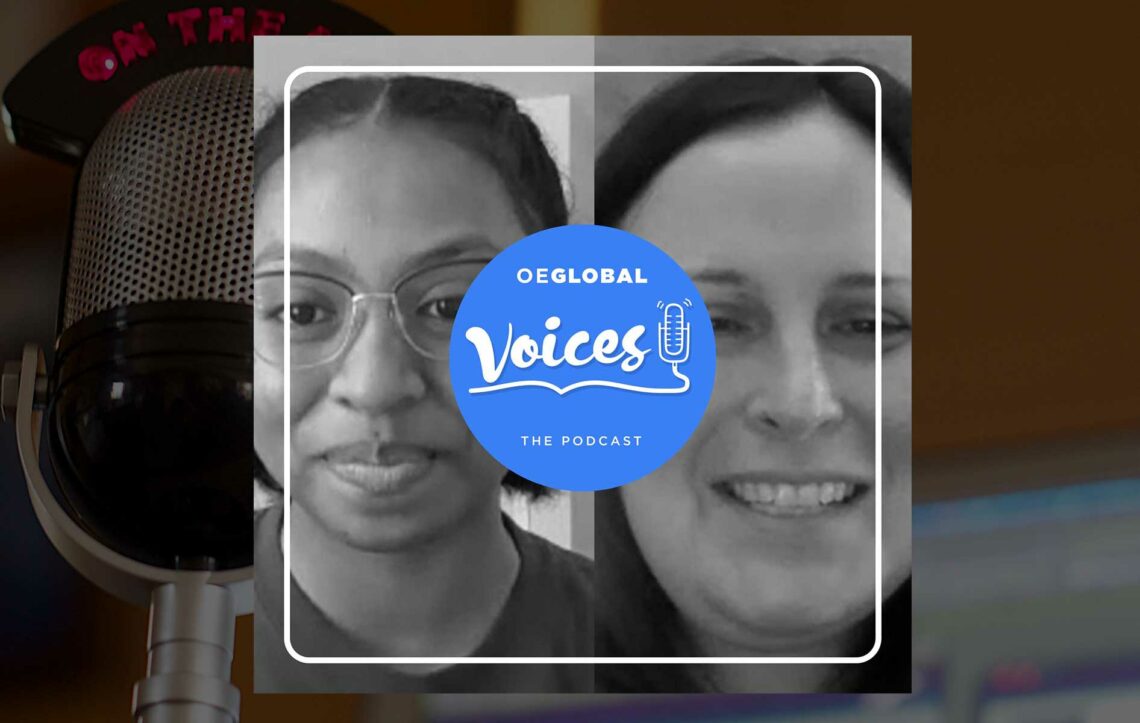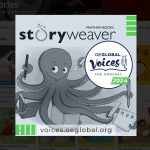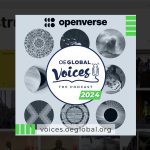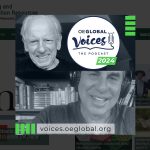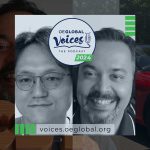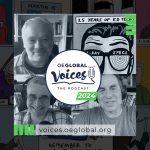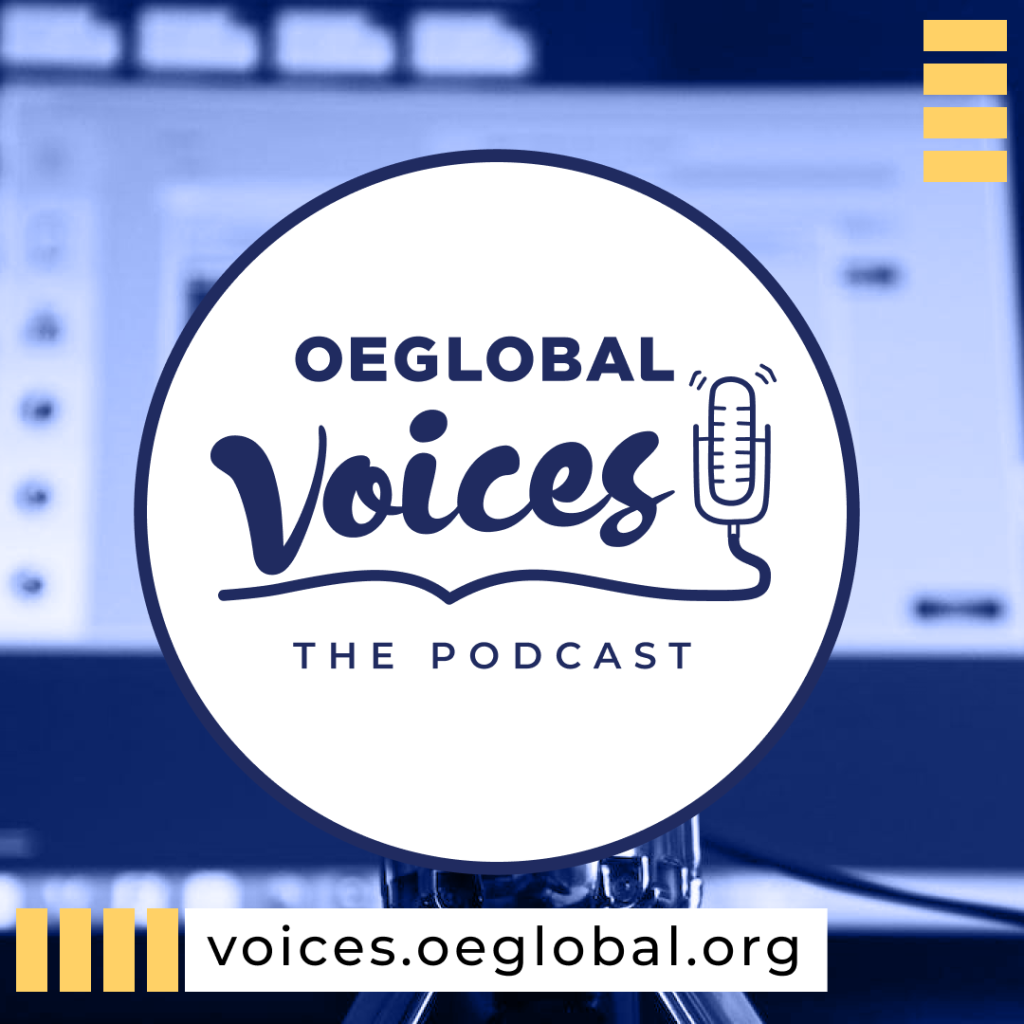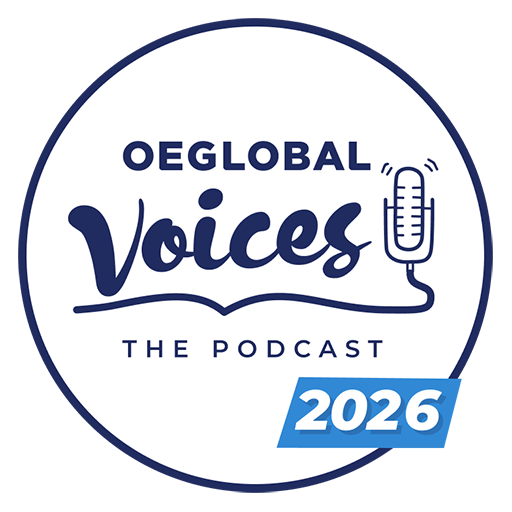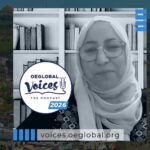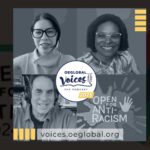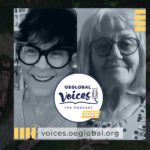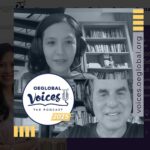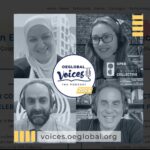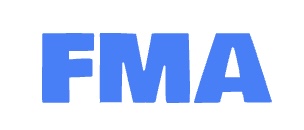In our fifth episode we bring to you the voices of a student, EvaTsitohay and her Anthropology teacher, Amy Carattini, from Montgomery College, Maryland. This conversation was arranged by and co-hosted by Una Daly, director of the Community College Consortium for OER (CCCOER) and Alan Levine from OE Global. We thank Michael Mills, Montgomery College Vice President, E-Learning, Innovation and Teaching Excellence, for recommending Eva and Amy for an interview.
We are very excited to feature a student voice who has experienced and benefitted from open educational resources. Eva was a student in Amy’s Introduction to Sociocultural Anthropology course (ANTH 201) which made use of Perspectives: An Open Invitation to Cultural Anthropology, an open textbook published by the Society for Anthropology in Community Colleges.
Podcast: Play in new window | Download
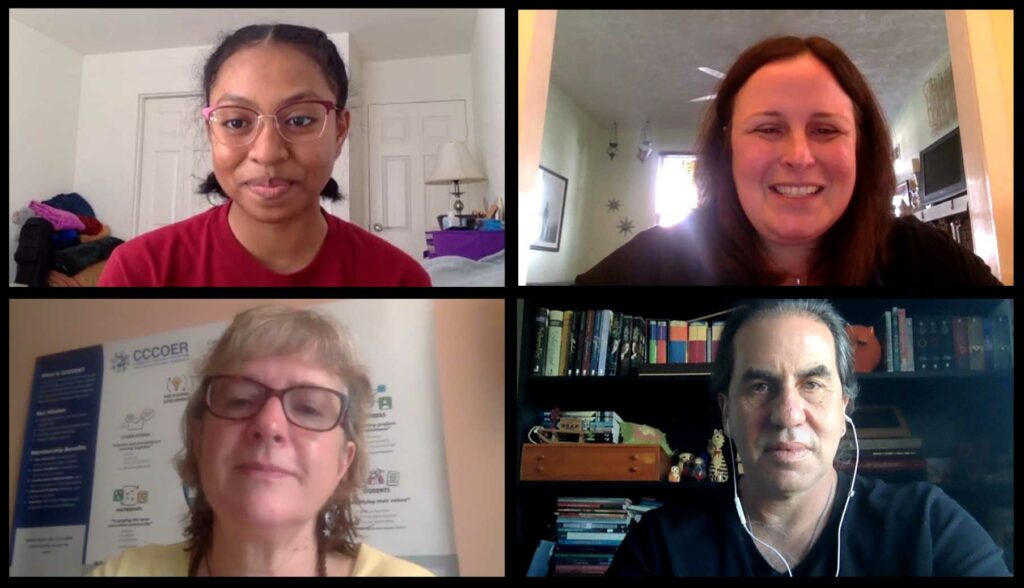
The Introduction to Sociocultural Anthropology class worked on an open pedagogy assignment using digital storytelling where students were able to translate primary research they conducted into a 3-5 minute video. Eva’s project explored the culture of actors and the theater.
We hear in this podcast how the introduction to digital storytelling led to Eva’s current independent study course in Anthropology with Amy, for which Eva has earned a Rookie Research endowed scholarship. She is conducting primary research through interviews with immigrant artists in the Washington DC Metro Area to understand their social and cultural identities and their identifications of home and belonging.
In Eva’s words:
As a part of the Montgomery Scholars program, I had the pleasure of being a part of Amy’s Introduction to Sociocultural Anthropology course last semester. Through that class, I was able to conduct a fieldwork project, where I studied the culture of theatre groups, in addition to creating a digital story about my findings. I really enjoyed how informative the class was and it was always structured in a way that made me excited to attend class. We used the Open Education textbook Perspectives (which I still find very useful for my current project, more on that later!) and in addition to the financial benefits of using a free text, Perspectives’ easy accessibility made studying and learning the material far easier as I was able to view it wherever I was physically.
The digital storytelling component of the class was also very enriching; it was the first time I was introduced to this mode of presenting information through the creative process of storytelling and it left me so enchanted that I am now a Level 1 Digital Storytelling Intern at Montgomery college. From my experience of creating a digital story and being guided during the process, I came to realize that this is a form of teaching that transcends the traditional memorizing of information and later getting tested on it; it not only exposes students to the variety of ways that they can deliver information to the public, but also allows instructors to experience a new way of teaching that has the ability to spark the inner creativities of their students waiting to be awakened. Like all stories, digital stories have the potential to reach audiences beyond the classroom and can be shared, even globally, with people outside the academic setting: this is also one of the reasons I was encouraged to take part in the internship and experience the process of creating all over again.
As I mentioned earlier, I still use the textbook Perspectives for my current project, which is a funded independent study part of the Rookie Research Endowed Scholarship. Building upon and taking what I learned from my fieldwork on the culture of theatre groups, I am currently researching immigrant artists in the United States, seeking to understand how they come into terms with and express their complex identities through the arts. I am still at the beginning of the research, but it has been a very fascinating and exciting ride; I believe that every artistic creation carries with it a deep and intricate personal narrative and am interested to hear the life stories of immigrants (who share this similar passion for the arts) and how their involvement in the arts has contributed to their stories and to who they represent themselves as today.
This is a fascination discussion of how students like Eva can get first hand experience in academic research at a community college. Her own words convey her understanding of the process and what this working relationship with a faculty member has meant to her. And all of this is more impressive as both Eva and Amy are actively pursuing this project under the altered conditions of the COVID-19 pandemic.
We are eager to bring more student voices into this podcast. If you know of students we should interview, please let us know.
Additional Resources
In the Fall 2020 issue of Montgomery College’s Scholarly Pursuits Amy wrote tis article about the application of digital storytelling in the Anthropology course she and Eva described in this episode.
Amy also shared an open pedagogy resource that is an outgrowth of two fellowships she has been part of at Montgomery College. This is an assignment on ethnographic mapping created through the UN Sustainable Development Goals Open Pedagogy fellowship. She is currently using this assignment with her current ANTH 201 courses. When the class maps are completed, she has planned a Global Classroom connection with colleagues in Buenos Aires, Argentina, to have a comparative discussion on issues of culture & sustainability in both Washington DC and in Buenos Aires.
Music used in this episode is from cc mixter: “Online Musical Journal Journey” by septahelix licensed under a Creative Commons Attribution (3.0) license.
